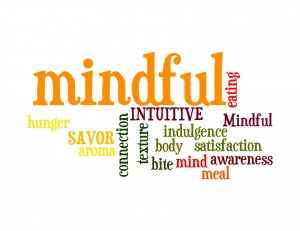
February 23rd through March 1st, 2014 is National Eating Disorder Awareness Week. The National Association of Eating Disorders (NEDA) sponsors a week long event to raise awareness of eating disorders.
This year’s theme is “I Had No Idea”. Key points, taken directly from NEDA’s website, of this year’s awareness week include:
Eating disorders are serious illnesses, not lifestyle choices.
Eating disorders are complex illnesses that arise from a combination of long-standing behavioral, emotional, psychological, interpersonal, biological and social factors. As our natural body size and shape is largely determined by genetics, fighting our natural size and shape can lead to unhealthy dieting practices, poor body image and decreased self-esteem. Body dissatisfaction and thin ideal internalization are both significant risk factors for the development of eating disorder behaviors like restricting and binge eating. While eating disorders may begin with preoccupations with food and weight, they are about much more than food. Recent research has shown that genetic factors create vulnerabilities that place individuals at risk for acting on cultural pressures and using food to feel in control or manage overwhelming emotions.
In the United States, 20 million women and 10 million men suffer from a clinically significant eating disorder at some time in their life, including anorexia nervosa, bulimia nervosa, binge eating disorder, or other specified feeding or eating disorder (OSFED).
Education, early intervention, and access to care are critical.
Early diagnosis and intervention significantly enhance recovery. If not identified or treated in their early stages, eating disorders can become chronic, debilitating, and even life-threatening conditions. A review of nearly fifty years of research confirms that anorexia nervosa has the highest mortality rate of any psychiatric disorder . As a culture, it is time for all communities to talk about eating disorders, address their contributing factors, advocate for access to treatment and take action for early intervention. You can make a difference: do just one thing to initiate awareness, education and discussion about eating disorders in your community. If we all do something, we’ll have a tremendous impact!
Help is available, and recovery is possible.
While eating disorders are serious, potentially life-threatening illnesses, help is available and recovery is possible. It is important for those affected, and their loved ones, to remember that they are not alone in their struggle. Others have recovered and are now living healthy fulfilling lives. Let the National Eating Disorders Association (NEDA) be a part of your network of support. NEDA has information and resources available via our website and helpline: www.NationalEatingDisorders.org, NEDA Helpline: 800-931-2237.




